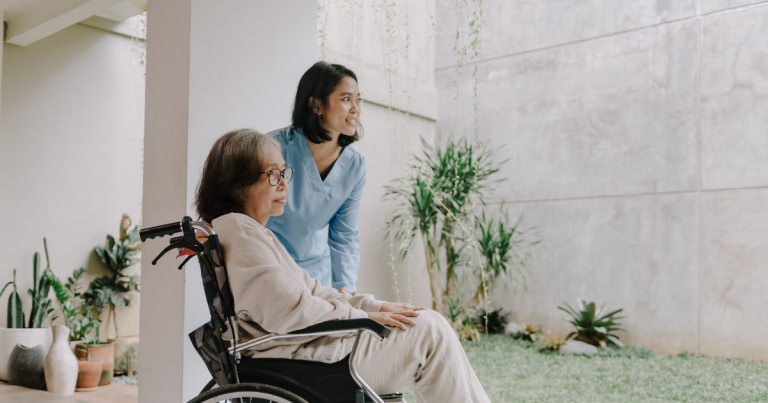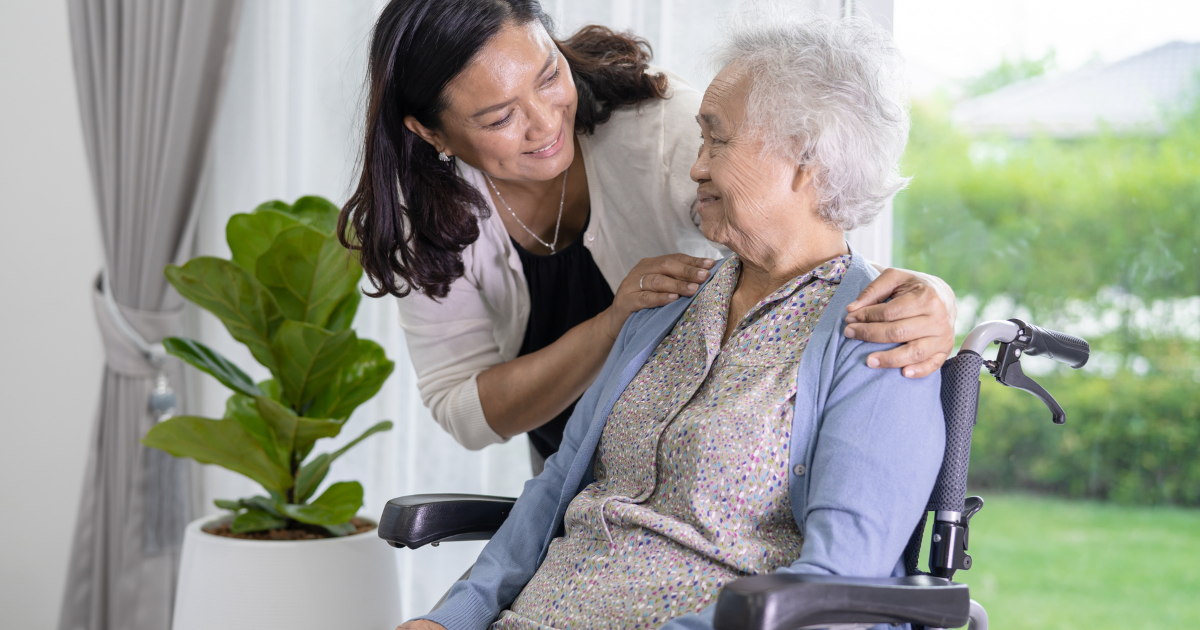
Relocation Stress Syndrome (RSS), also called Transfer Trauma, is a condition that affects people as they move to a new living environment. It involves emotional, physical, and even mental challenges caused by the stress of leaving behind familiar places and routines.
Moving is one of the most stressful experiences at any age, but for older adults, it can be even harder. The sense of loss, combined with adjusting to a completely new setting, can feel overwhelming.
For seniors moving into a senior living community, the emotional challenges often go beyond just organizing and packing. The process can feel heavy as they leave behind a home that’s been a part of their life for so long.
If you are a senior transitioning into a new living environment, it is important to understand RSS and the challenges you face during this new transition. With the right support, RSS doesn’t have to be a barrier to experiencing the vibrant, engaging life that senior living communities can offer.
Understanding Relocation Stress Syndrome
 Relocation Stress Syndrome is a real medical condition and it involves more than just the stress of moving. It is a combination of emotional and physical challenges that can impact a person’s well-being and sense of stability.
Relocation Stress Syndrome is a real medical condition and it involves more than just the stress of moving. It is a combination of emotional and physical challenges that can impact a person’s well-being and sense of stability.
Moving isn’t just about changing where you live—it’s about leaving behind routines, familiar surroundings, and sometimes even a sense of identity. This can be especially hard for older adults who may have lived in the same home for decades, surrounded by memories and personal comforts.
For many seniors, moving to an independent or assisted living community is a big life change. While these communities offer great opportunities for connection, convenience, and staying active, leaving a home filled with memories can feel overwhelming. It’s not just about packing and organizing—it’s about saying goodbye to a place that has been home for so long.
The move can be even harder for those dealing with health problems, limited mobility, or memory issues. These challenges can make the transition more stressful and add to feelings of uncertainty. For some, the move may also feel like a loss of independence, which can make them more vulnerable to the effects of Relocation Stress Syndrome.
Recognizing how relocation affects both the mind and body is the first step to making the process smoother. With the right preparation and support, this change can be a chance to start fresh while holding on to the things that truly matter.
Common Symptoms of Relocation Stress Syndrome
 Relocation Stress Syndrome (RSS) can affect people in many different ways, and its symptoms often overlap with other medical or emotional conditions. This makes it especially important to recognize the signs early so that steps can be taken to provide support and relief.
Relocation Stress Syndrome (RSS) can affect people in many different ways, and its symptoms often overlap with other medical or emotional conditions. This makes it especially important to recognize the signs early so that steps can be taken to provide support and relief.
Emotional Symptoms
Moving to a new place can bring up strong emotions that go beyond regular stress. People dealing with Relocation Stress Syndrome (RSS) may feel:
- Anxiety: Worries about facing the unknown, getting used to a new routine, or making friends can feel overwhelming.
- Sadness or Grief: Saying goodbye to a home filled with memories can feel like losing a part of yourself.
- Anger or Frustration: Some might feel upset or resentful about the move, especially if they didn’t have much say in the decision.
- Helplessness: Losing control over your surroundings can lead to feeling vulnerable or powerless.
Physical Symptoms
Stress doesn’t just affect your emotions—it can also show up in your body. Physical signs of RSS might include:
- Changes in Appetite: Some seniors stop feeling hungry, while others may eat more for comfort.
- Sleep Problems: Trouble falling asleep, staying asleep, or feeling tired even after a full night’s rest can happen.
- Fatigue: Constant tiredness may set in, even without doing much physically.
- Aches and Pains: Stress can lead to headaches, tight muscles, or general discomfort that wasn’t there before.
Cognitive Symptoms
Relocation stress can also affect how clearly you think, especially for older adults who may already have memory issues. Some common signs include:
- Confusion: Having a hard time understanding or adjusting to the new environment.
- Disorientation: Forgetting where you are or struggling to find your way, even in familiar spaces.
- Memory Problems: Increased forgetfulness, which can make existing conditions like dementia or mild cognitive impairment worse.
The Impact of RSS on Overall Health and Well-being
If left unaddressed, RSS can have serious effects on your health and happiness. Moving to a new place can be tough on your mental health. Many seniors experience increased feelings of depression and anxiety, especially if they’re leaving a familiar environment behind. Over time, this stress can build up and make it harder to feel positive or settled in your new surroundings.
Unfortunately, it’s not just your emotions that are affected—stress like this can also weaken your body. It might take longer to recover from illnesses, and you could even become more prone to getting sick.
Another big challenge is dealing with social isolation. When you move to a new community, it’s easy to feel out of place or unsure how to get involved. This can make social activities feel overwhelming or intimidating. When this happens, you might feel tempted to pull back and keep to yourself. But withdrawing like this can make the problem worse, creating a cycle of loneliness that’s hard to break.
Finding ways to address both the mental and social impacts of moving is important to making the transition easier and building a sense of comfort and connection in your new home.
Tips for Easing Relocation Stress Syndrome
 If you’re moving into a new living community, like an independent living or assisted living space, there are steps you can take to make the transition easier. These tips can help reduce the stress of relocation and help you feel more comfortable and at home:
If you’re moving into a new living community, like an independent living or assisted living space, there are steps you can take to make the transition easier. These tips can help reduce the stress of relocation and help you feel more comfortable and at home:
Before the Move
- Get Involved in the Decision-Making. When you are involved in discussions about the move, you’ll feel more in control. Your input on where you’ll live, how your new space will look, and what you’ll bring is invaluable.
- Tour the Community. Visit the community ahead of time to meet staff, explore amenities, and observe daily life. This alone can build familiarity and ease anxieties.
- Meet Neighbors. Make a point to meet future neighbors during these visits. Establishing early connections can reduce the fear of loneliness and isolation.
- Plan and Organize Together. Sort through belongings and decide what to take together. These are your belongings and memories, and you deserve to have input on what you take with you to your new home.
During the Move
- Create a Familiar Environment. Bring cherished items like family photos, favorite furniture, and personal décor to make the new space feel like home. Familiar scents, such as a favorite candle or a beloved blanket, can also comfort you.
- Personalize the Space. You should decide where items go in your home. This will give you a sense of ownership and control in your new surroundings and keep RSS symptoms at bay.
After the Move
- Establish a Routine. Create a consistent daily schedule so your environment is more predictable and comfortable. Simple routines, such as morning coffee in the same spot or regular walks around the community, can help.
- Encourage Social Connections. Participate in group activities, hobby clubs, or community events. Even small gestures, such as introducing yourself to a neighbor, can lead to meaningful relationships.
- Explore Together. Spend time walking through the community, visiting shared spaces, and attending events with your loved ones. Introducing them to your new living community can make you feel more engaged and more at home.
How FellowshipLIFE Supports Residents Through Transitions
At FellowshipLIFE, we know everyone has their own needs, and we work hard to make sure your move is as easy as possible. Our team takes the time to listen to you and provide the support you need so you feel comfortable and valued.
To help you get used to your new home, we have welcome events and orientation programs. These events help you learn about the community and meet other people who are also settling in. If you’re feeling stressed about the move, our counseling and wellness services are here to help.
We also encourage you to dive into your new lifestyle by joining fun activities and programs. These are great ways to make friends, try new things, and feel at home in your new environment.
Relocation Stress Syndrome is a real challenge, but it doesn’t have to define your experience of moving to a senior community. Recognizing and addressing RSS can transform this life change into an opportunity for growth, connection, and renewed purpose. At FellowshipLIFE, we are dedicated to making transitions as smooth and supportive as possible.
Come Explore FellowshipLIFE
If you or a loved one are considering a move to independent or assisted living, we’re here to help. If you’re ready to learn more about how we can support you during this move, contact us today. Together, we can ensure your next chapter is filled with warmth, comfort, and community.




